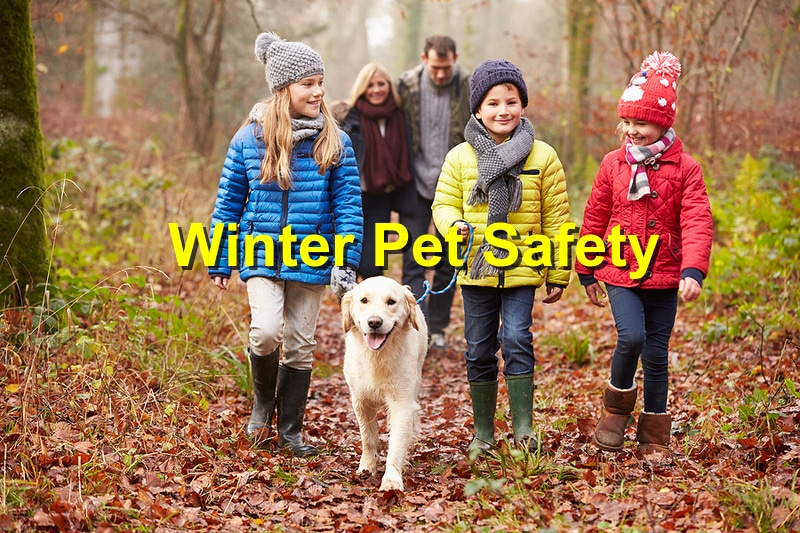Winter Pet Safety Tips: Protecting Your Dog from Cold Weather Hazards

As the winter chill sets in, ensuring the well-being of your furry companion becomes a priority. The cold weather brings its own set of challenges for dogs, and taking proactive measures is crucial to keep them safe and healthy during this season. Here's an in-depth guide with essential tips to safeguard your dog from the hazards of winter:
Understanding Cold Weather Risks for Dogs
Dogs, much like humans, can suffer from the adverse effects of cold weather, including frostbite and hypothermia. Factors like breed, age, health condition, and coat density impact a dog's ability to handle low temperatures. Short-haired breeds, puppies, and senior dogs are particularly susceptible to the cold.
Winter Safety Measures for Your Dog
- Limit Outdoor Exposure: Minimize extended time outdoors, especially during harsh weather conditions. Dogs should be brought inside during extreme cold to prevent cold-related illnesses.
- Appropriate Clothing: Consider using dog sweaters or coats for breeds sensitive to cold weather. Ensure the clothing fits well and doesn't restrict movement.
- Paw Protection: Ice, snow, and de-icing agents can be harmful to a dog's paws. Clean and dry their paws after walks, and use pet-safe paw balms or boots for added protection.
- Dry and Warm: After outdoor activities, thoroughly dry your dog, paying attention to their paws, belly, and ears. Keep them warm and cozy indoors.
- Proper Shelter: If your dog stays outside, provide a well-insulated shelter with proper bedding. Elevate the shelter to prevent contact with cold ground and ensure it's draft-free.
- Hydration: Ensure access to fresh water at all times. Dehydration can occur in cold weather due to increased panting and dry air.
- Moderate Exercise: Maintain exercise routines with shorter walks or indoor activities to prevent lethargy while avoiding prolonged exposure to cold.
- Avoid Toxic Substances: Be cautious of chemicals like antifreeze, which are toxic to dogs. Keep these substances out of reach, and clean your dog's paws after walks.
- Watch for Warning Signs: Monitor your dog for signs of distress or illness such as shivering, weakness, or disorientation. Contact a vet if you notice any concerning symptoms.
- Regular Vet Visits: Schedule regular check-ups with your vet to ensure your dog's health and address any weather-related concerns.
Taking these proactive measures will help ensure your furry friend stays warm, healthy, and safe during the cold winter months. Remember, your dog relies on you to protect them from the harshness of the season, so a little extra care goes a long way in keeping them comfortable and happy.
https://braseltonervet.com/?p=4002
Comments
Post a Comment